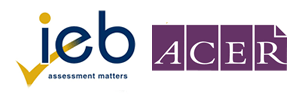Skills Development
 |
There are more than 240,000 consultants / agents working in the Global Business Sector in South Africa today with approximately 50,000 focused on international business only.
South African has a competitive and compelling value proposition for the major sourcing markets, offering capabilities that extend across the end to end customer journey. While our industry was founded on a strong English language voice capability, companies located in South Africa service a wide range of outsourced complex functions, including but not limited to, software development, tech support, finance, legal, and HR.
With geo-political, economic, technology and business changes impacting our target global sourcing markets (the USA, Canada, UK and Australia) these numbers are projected to grow significantly over the next three to five years.
BPESA is committed to developing the human capital infrastructure nationally to support this rapid growth through the up-skilling, re-skilling and continual professional development of the BPO and Captive labour force: agents, specialist roles, team leaders and management. In response to the skills challenge, BPESA has formulated a comprehensive skills strategy which is being implemented in partnership with National, Provincial and City Government and in close collaboration with the industry operators and service-providers to develop skills programmes and targeted skills interventions that will result in a sustainable world-class BPO talent pipeline and skills supply.
The BPESA skills strategy incorporates career awareness initiatives, work-seeker support services, a skills portal and a federated skills supply chain.
- There are more than 240,000 consultants / agents working in the Global Business Sector in South Africa today with approximately 50,000 focused on international business only.
- South African has a competitive and compelling value proposition for the major English language speaking sourcing markets, offering capabilities that extend across the end to end customer journey. While our industry was founded on a strong English language voice capability, companies located in South Africa service a wide range of complex functions, including but not limited to, software development, tech support, education, finance, legal, and HR.
- Combining the increased competitiveness of the South African GBS offering with geo-political, economic, technology and business changes impacting our target global sourcing markets (the USA, Canada, UK and Australia) these numbers are projected to double over the next five years.
- BPESA is committed to the continued development of the human capital infrastructure nationally to support this rapid growth through the up-skilling, re-skilling, future-skilling and continual professional development of the GBS labour force across all roles.
- BPESA is in the process of implementing its second five- year skills strategy in partnership with National, Provincial and City Government and in close collaboration with the industry operators and service-providers and educational role players to develop the required skills for the future while ensuring that companies doing business in South Africa have access to the talent pipeline.
- The strategy is multi-faceted and addresses policy, education technology, programmes for upskilling the incumbent workforce for new and future jobs, and programmes for accelerating the training and employment of youth to work in fist time jobs in the Sector.
Role Players
NATIONAL GOVERNMENT DEPARTMENTS
 |
DEPARTMENT OF TRADE, INDUSTRY AND COMPETITION (DTIC) |
|
The dtic’s mandate is to provide a sustainable environment for the development of the economy of South Africa. In the context of the GBS sector, the dti is mandated to market South Africa as an attractive investment destination for the sector and does so with the aid of specifically designed Government incentives and support programmes. |
|
 |
DEPARTMENT OF EMPLOYMENT & LABOUR (DEAL) |
|
Formerly known as Department of Labour (DoL), this department was at one point the home for what is now the skills development branch of the DHET. Since losing the skills branch to DHET in 2009, DoL has played a smaller role in the skills supply chain, but its national network of labour centres offering employment services for work-seekers and employers is a valuable resource. The addition of “Employment” to the department’s title may indicate a more strategic role for this entity in the new Ramaphosa administration. |
|
 |
DEPARTMENT OF BASIC EDUCATION (DBE) |
|
The DBE is responsible for national education from Grade R to Grade 12 (also known as matric). Adult literacy was also located in their ambit but is now moving to DHET in the Community College branch. |
|
 |
POST-SCHOOL EDUCATION & TRAINING (PSET) SECTOR |
|
This is an umbrella term for all public and private role-players serving post-school youth spanning the formal qualification frameworks of the TVET college system, the SETA system, and the university system, as well as short courses and informal programmes of employers, NGOs and other providers. The sector serves those who have completed their schooling, those who have never been to school, and those who dropped out of school. Within the sector there are 25 public universities, 50 public TVET colleges with 250 campuses, 9 public community colleges, private universities and TVET colleges, 23 SETAs, the National Skills Authority, the National Skills Fund, the South African Qualifications Authority, and three quality councils (the Council on Higher Education, Umalusi and the Quality Council for Trades & Occupations). |
|
 |
DEPARTMENT OF HIGHER EDUCATION, SCIENCE & TECHNOLOGY (DHET) |
|
Formerly known as Higher Education and Training (DHET), this is the government line ministry tasked with the governance of the PSET sector and the most PSET institutions are directly responsible to the Minister of HEST. It comprises several units, of which the following three are most likely of direct relevance to GBS stakeholders: the Skills Development branch, the TVET Branch and the University Branch. |
|
 |
DHET CAREER DEVELOPMENT SERVICES (KHETHA) |
|
Khetha was established as a career guidance initiative within SAQA with funding from the Canadian government in 2010. The initiative has since become a permanent unit with DHET although it retains much of the youthful, vibrant, and independent ethos it started with. The unit operates a multi-channel call-centre and mobile unit which interfaces directly with scholars seeking subject choice guidance, matriculants seeking career or further study guidance, and work seekers needing help with job search and work readiness. Khetha has built a video library of scarce skill careers to help raise awareness amongst youth on new and emerging occupations in short supply. It also receives extensive free radio and TV airtime for its work through the Government Communication and Information System (GCIS). Khetha extended its youth focus to service career development practitioners and TVET college staff needing to offer work readiness interventions for final year students. It also has the capacity to train TVET staff in designing and delivering their own work readiness interventions. Khetha also seeks to partner with employers to raise awareness of career pathways and to facilitate workplace-based exposure for scholars and TVET students. As a shared service across all 50 public TVET colleges, Khetha represents a significant positive leverage point for interfacing with colleges, designing partnerships and obtaining third party mediation and support in bridging talent pipeline gaps. Khetha can also provide feedback to DHET executives and policy makers on systemic issues that need to be resolved to unlock the potential for youth employment. |
|
 |
NATIONAL SKILLS FUND (NSF) |
|
The NSF was established in 1999 as a Schedule 3A public entity with relative autonomy within the DHET. It receives 20% of the Skills Development Levy collected monthly by SARS from employers with a payroll of over R500,000 per annum. The funding is earmarked for vulnerable groups outside of the formal labour market who are not reached by workplace training. Beneficiaries include rural communities, women, unemployed youth and people with disabilities. |
|
 |
NATIONAL SKILLS AUTHORITY (NSA) |
|
The NSA was established in 1998 to provide advice to the Minister of HEST from a broad range of education and training stakeholders, both public and private. It has since evolved to include research, monitoring and evaluation of SETAs and the National Skills Development Strategy, at the time a five-year plan. The NSA board consists of stakeholders from the community, labour, business and education and training providers. |
|
 |
NATIONAL QUALIFICATIONS FRAMEWORK (NQF) |
|
The comprehensive system for the classification, registration, publication and articulation of quality-assured national qualifications and part-qualifications. The South African NQF is a single integrated system comprising three co-ordinated qualifications sub-frameworks namely for: General and Further Education and Training (Umalusi); Higher Education (CHE); and Trades and Occupations (QCTO), where the organisation in brackets it the quality council with oversight for that specific sub-framework. |
|
 |
SOUTH AFRICAN QUALIFICATIONS AUTHORITY (SAQA) |
|
SAQA has overall responsibility for the advancement of the National Qualifications Framework (NQF). This includes overseeing qualification development across the three quality councils (Umalusi, QCTO, CHE) and their sub-frameworks as well as formally recognising professional bodies that meet national criteria for recognition. |
|
 |
QUALITY COUNCIL FOR TRADES & OCCUPATIONS (QCTO) |
|
One of the three quality councils established under SAQA to oversee learning in the NQF, responsible for the Occupational Qualifications Sub-Framework and reporting to the Minister of DHET. The QTCO oversees occupational qualifications spanning NQF levels 1 - 8. It is the primary quality council for SETAs and workplace learning, and delegates some of its functions to SETAs where appropriate. Whereas before 2010 each SETA had its own quality assurance body (ETQA), the QCTO has been transitioning all legacy SETA quality assurance responsibilities to itself. |
|
 |
COUNCIL ON HIGHER EDUCATION (CHE) |
|
One of the three quality councils established under SAQA to oversee learning in the NQF, responsible for the Higher Education Qualifications Sub-Framework and reporting to the Minister of DHET. The CHE oversees the quality assurance of higher education spanning NQF levels 5 - 10. It is the primary quality council for public universities and private Higher Education Institutions (HEIs). All undergraduate and postgraduate qualifications fall under the CHE along with the national research policy and infrastructure. See also Universities South Africa (USAF) later. |
|
 |
UMALUSI |
|
One of the three quality councils established under SAQA to oversee learning in the NQF, responsible for the General and Further Education & Training Qualifications Sub-Framework and reporting to the Minister of Basic Education. Umalusi is responsible for the quality assurance of higher education spanning NQF levels 1 - 4. It is the primary quality council for ABET provision, primary and secondary schooling, as well as TVET colleges. |
|
 |
SECTOR EDUCATION & TRAINING AUTHORITIES (SETAs) |
|
SETAs represent employer, labour and government interests in education and training for each sector of the economy, with a special emphasis on workplace learning. There are currently 21 SETAs, down from an initial 27 established in 1998. Additional mergers are expected to take place which will reduce the number slightly. SETAs are not funded via the national budget but rather through a 1% monthly tax on payroll (the Skills Development Levy). SETAs do not directly engage in training but rather fund education and training institutions, including employers, to deliver interventions identified in their sector skills plans, which are developed through research and consultation with employers and other sector stakeholders. Collectively SETAs marshal approximately R16bn per annum and can be very influential in human capital development in their sectors when employers second senior staff to SETA board positions, and actively engage in SETA projects. SETAs have strongly influenced the design of the Skills Development Element of the B-BEE Codes of Good Practice and have a strong emphasis on social transformation and youth employment. Some SETAs are taking the Fourth Industrial Revolution very seriously and are investing in research and new programme development to prepare for the impact. The QCTO is responsible for quality assurance of the bulk of SETA learning programmes, and delegates some of its work to SETAs where no professional or industry body exists. SETAs also fund higher education substantially through bursaries, lecturer development, research chairs and infrastructure grants. |
|
PROFESSIONAL BODIES & INSTITUTIONS
 |
SA BOARD FOR PEOPLE PRACTICES (SABPP) |
|
The SABPP is a SAQA recognised professional body for the human resources profession. Its membership includes most large employers and spans both the public and private sector. It has active provincial committees as well as specialist committees in most of the HR disciplines and hosts professional development workshops, conferences and seminars on a range of relevant topics. It also works as a Quality Partner of the QCTO. |
|
 |
UNIVERSITIES SOUTH AFRICA (USAF) |
|
USAF is a representative body for public universities in South Africa, lobbying and advocating for the transformation of higher education and a better operating environment for the research, community engagement and teaching activities of their members. USAF membership includes 26 public universities and its directors consists of the vice-chancellors of each university. |
|
 |
ASSOCIATION FOR SKILLS DEVELOPMENT SOUTH AFRICA (ASDSA) |
|
The ASDSA is a representative body for skills development professionals including education and training practitioners and organisations. It was one of the first bodies to offer Skills Development Facilitators support and guidance in the newly legislated role required by the Skills Development Act of 1998. |
|
INTERMEDIARIES
 |
HARAMBEE YOUTH EMPLOYMENT ACCELERATOR) |
|
Harambee is a youth employment Accelerator (non-profit). Harambee connects employers looking for entry level talent to young, high potential work-seekers who are currently locked out of the formal economy. Harambee recruits candidates where existing corporate recruitment networks do not reach, assess their competencies and match them to jobs where they are most likely to succeed. Harambee has connected over 115,000 youth to work experience and jobs. Harambee has been a key partner, together with BPESA and the dti to attract FDI and to target 50,000 new jobs for the GBS sector. Harambee is a not-for-profit company focussed on building and facilitating solutions as an eco-system manager to address the “mismatch of demand and supply” in the youth labour market. With an in-depth understanding of demand-side and supply-side mismatch, Harambee defines and demonstrates alternative pathways for transition into the economy. Amongst other things, it uses its large network to contract with funders whose mandates are aligned to closing the gap and converting an economically excluded NEET (not in employment, education or training) youth into a state of work readiness. It identifies and supports suitable organizations to build and deploy the capabilities required as operators to upskill the youth; and it convenes stakeholders to identify, design and implement solutions to address systemic challenges inhibiting economic growth and job creation in targeted sectors. Harambee works with 500+ South African employers – from large corporates to small businesses to microenterprises – across all economic sectors – and partners with industry bodies, Government, social investors and other social partners to achieve its goals. |
|
 |
WORKFIT CAMPUS |
|
WorkFit was established with a grant from the Rockefeller Foundation as the last of its Digital Jobs Africa projects with a view to sharing research and tools developed from the best practices of the top ten global demand driven training providers with the public TVET and university system in South Africa. WorkFit is actively facilitating linkages between employers and TVET colleges using the WorkFit Toolkit, which can be downloaded from their website, as a primary resource. |
|
 |
MENTEC FOUNDATION |
|
Mentec Foundation’s main objective is to develop African leaders in ICT while bringing niche ICT solutions such as SAP ERP, JAVA, Oracle, along with industry specific curricula and innovative ICT programmes to ordinary community members in townships and rural areas. It targets youth between the ages of 18 to 35, that have matric and ideally a tertiary qualification. |
|
 |
IMPACT SOURCING ACADEMY |
|
Maharishi Institute, established in 2007 by the Community and Individual Development Association founded in 1979, launched the Impact Sourcing Academy (ISA) – Non-profit - vocational training programme in Johannesburg in 2013 and in Durban in 2014. The goal of ISA is to train unemployed youth for jobs available in the growth sectors including South African call centre industry and BPO sector. Curriculum covers work readiness, communication and life skills, a wide range of BPO topics including call management, IT Skills through IT partners and access to a degree programme for further study. Maharishi institute practices Consciousness Based Education (CBE), a process of learning by connecting each discipline with the student’s personal experience; all students learn and practice transcendental meditation twice daily. |
|
 |
CAREERBOX |
|
CareerBox is a for-profit recruitment and skills development organisation, specialising in customer contact and recruitment induction. Careerbox sources and develops young talent and equips them with capabilities to excel within a contact centre environment, interfacing with customers and driving brands forward. Target groups are for youth aged between 18 – 35, with English language proficiency, basic computer skills and from disadvantaged backgrounds. |
|
OTHER
 |
EDUCATION & TRAINING QUALITY ASSURANCE BODIES (ETQA) www.che.ac.za/media_and_publications/other/directory-etqas-and-professional-bodies |
|
|
|
 |
HIGHER EDUCATION QAULITY COMMITTEE (HEQC) |
|
|
|
 |
INDEPENDENT EXAMINATIONS BOARD (IEB) |
|
|
|
 |
INDEPENDENT SCHOOLS ASSOCATION OF SOUTHERN AFRICA (ISASA) |
|
|
|
 |
INSTITUTION FOR THE NATIONAL DEVELOPMENT O LEARNERSHIPS, EMPLOYMENT SKILLS AND LABOUR ASSESSMENTS (INDLELA) |
|
|
|
 |
NATIONAL PROFESSIONAL TEACHERS’ ORGANISATIONS OF SOUTH AFRICA (NAPTOSA) |
|
|
|
 |
NON-STATUTORY PROFESSIONAL BODIES |
|
|
|
 |
STATUTORY PROFESSIONAL BODIES |
|
|
|
 |
SOUTH AFRICAN COUNCIL FOR EDUCATORS (SACE) |
|
|
|
 |
TVET COLLEGES SOUTH AFRICA |
|
|
|
 |
WORK INTEGRATED LEARNING, PARTNERSHIPS & INNOVATION DIRECTORATE |
|
|
|
Guiding Legislation & Regulations
Skills Development Act - www.labour.gov.za/DOL/legislation/acts/skills-development/skills-development-act-and-amendments
Skills Development Levies Act - www.labour.gov.za/DOL/legislation/acts/skills-development/skills-development-levies-act
South African Qualifications Authority Act - www.gov.za/documents/south-african-qualifications-authority-act
Employment Equity Act - www.labour.gov.za/DOL/legislation/acts/employment-equity/employment-equity-act
National Qualifications Framework Act - www.gov.za/documents/national-qualifications-framework-act
Continuing Education and Training Act - www.gov.za/documents/further-education-and-training-colleges-act
Higher Education Act - www.gov.za/documents/higher-education-act
Adult Education and Training Act - www.gov.za/documents/adult-basic-education-and-training-act
National Student Financial Aid Scheme Act - www.gov.za/documents/national-student-financial-aid-scheme-act
Co-Operatives Act - www.gov.za/documents/co-operatives-act
Broad-Based Black Economic Empowerment Act - www.gov.za/documents/broad-based-black-economic-empowerment-act
Labour Relations Act - www.labour.gov.za/DOL/legislation/acts/labour-relations/labour-relations-act
Employment Services Act - www.gov.za/documents/employment-services-act
National Minimum Wage Act - www.gov.za/st/node/784787
Companies Act - www.gov.za/documents/companies-act
Education Laws Act - www.gov.za/documents/education-laws-amendment-act
General and Further Education and Training Quality Assurance Act - www.gov.za/documents/general-and-further-education-and-training-quality-assurance-act
Basic Education Laws Act - www.gov.za/documents/basic-education-laws-amendment-act
South African Schools Act - www.gov.za/documents/south-african-schools-act
South African Council for Educators Act - www.gov.za/documents/south-african-council-educators-act
National Education Policy Act - www.gov.za/documents/national-education-policy-act
Basic Conditions of Employment Act - www.gov.za/documents/basic-conditions-employment-act
Skills Development Grant Regulation - www.bankseta.org.za/wp-content/uploads/2018/08/Skills_Development_Grant_Regulations.pdf
Public Finance Management Act - www.bankseta.org.za/wp-content/uploads/2018/08/Public_Finance_Management_Act_1999.pdf
Preferential Procurement Policy Framework Act - www.gov.za/documents/preferential-procurement-policy-framework-act-regulations-20-jan-2017-0000
Skills Policies
DHET Policies: www.dhet.gov.za/SitePages/DocPolicies.aspx
- HED Policies
- System Planning & Monitoring Policies
DBE Policies: https://www.education.gov.za/Resources/Policies.aspx
- Access to Schools Policies
- School Management Policies
- School Funding Policies
- Curriculum and Assessment Policies
ISASA Policy Database: www.isasa.org/policy-database/#
Umalusi Policies: www.umalusi.org.za/list.php?type=Policies
USAF Policies: www.usaf.ac.za/category/policy-commentary/
QCTO Policies: www.qcto.org.za/index.php/publications/policies.html
CHE Policies: www.che.ac.za/media_and_publications/publications/frameworks_and_criteria
SETA Policies:
AgriSETA - www.agriseta.co.za/inner?section=5&page=157
FASSET - www.fasset.org.za/inner?section=1&page=18
SAQA Policies: www.saqa.org.za/list.php?e=Policy
BBBEE Amendments: 31ST May 2019, No. 42496
The DTI published a number of amendments to the B-BBEE Codes on Friday, 31 May 2019. While further clarity may still be provided by the DTI, kindly find BPESA’s preliminary summary on statement 000 (general principles), statement 300 (skills development), statement 400 (enterprise and supplier development) and schedule 1 (interpretation and definitions) for your consideration.
The amendments will become effective 6 months following their gazetting i.e. by 01 December 2019. For BBBEE audit prior 30 November 2019, the outgoing version of the codes will still apply and for any BBBEE audit from 01 December 2019, this amended version of the codes will apply.
For organisations subscribing to a particular sector charter, these amendments will not be applicable upon incorporation into that particular sector charter.
{loadposition bee-docs}
Useful Links & Documents
EWSETA Critical & Scarce Skills - http://ewseta.org.za/ssd/critical-skills-scarce-skills/
OECD: Getting Skills Right: South Africa - https://read.oecd-ilibrary.org/employment/getting-skills-right-south-africa_9789264278745-en#page1
https://www.education.gov.za/Research,MonitoringEvaluationReports.aspx
Communication 13 - COVID-19 Business Update
Gazette 47152 - Critical Skills
BPESA facilitates quarterly skills forums in each region, engaging professional practitioners in discussions about current and future skills challenges and opportunities and in planning for the implementation of strategic skills initiatives.
Key focus areas of the forums in 2020 will include:
- Future skills and the transition to Industry 4.0
- Addressing scarce and critical skills
- The implementation of a future skills learning platform
- Implementing programmes to accelerate the training and employment of youth into first time jobs in digital ICT and BPO roles
View the calendar for dates, times and venues of the skills forums in each region.
Navigating the Skills Landscape can be daunting! On this page you can quickly access and read documents and presentations that will provide you with useful information on Strategies, Practices and Trends, as well as legislation relating to Skills Development in South Africa.
| Request Access to the Skills Needs Analysis Research |
| View all our Local Skills Development Research Documents | View all our International Skills Development Research Documents |
Explore and click through the interactive below to learn more about the GBS Skills Supply Chain


